Out Now
The Heritage Issue
Current Issue
The Heritage Issue
Apr-May 2025

Employers who do not take active steps to prevent sexual harassment in the workplace may face claims and civil penalties following new industrial relations laws.
The Respect@Work laws represented the new Federal Government’s first reforms in industrial relations since the election. The changes specifically target sexual harassment in the workplace.
Following MEA’s industry webinar held in January, these are some of the key issues relevant to electrical contractors and small businesses.
The reforms expand the way in which sexual harassment matters can be handled by the Fair Work Commission (FWC) and the federal courts.
Under the Act, sexual harassment in the workplace is expressly prohibited, and a breach of this prohibition can result in claims and civil penalties.
One of the most notable changes is the introduction of a ‘positive duty’ for employers to take reasonable and proportionate measures to eliminate unlawful sexual harassment.
This means most sexual harassment risk management practices will have to be significantly increased, and employers will need to take active steps, including training and policy implementation, to meet this ‘positive duty’.
It is not just direct employees covered under the laws, but any ‘worker’. The term worker has a broader definition than just employees and includes:
Workers, prospective workers, and persons conducting a business or undertaking will each be able to seek remedies under the Fair Work Act.
The amendments include a provision that means an aggrieved person can seek remedy from their employer in addition to the perpetrator.
Every employer will need to demonstrate that they have taken all reasonable steps to prevent sexual harassment. If a business is found to have failed to take reasonable steps to prevent workplace sexual harassment, it may face enforcement action.
Employers should be able to readily produce records around sexual harassment training, policies and other relevant documents relating to workers, much like they do in safety investigations.
The Fair Work Ombudsman (FWO) will be able to compel the production of documents and records or the examination of individuals. If the complaint is sustained, the FWO can take enforcement actions such as compliance notices, enforceable undertakings or litigation seeking civil penalties and/or compensation.
Changes to enterprise agreements
The laws also include changes to enterprise agreements which may have major impacts that could affect existing agreements and future bargaining.
This includes changes to the procedural requirements for approval of an agreement – where staff vote on the deal – as well as rules around unilateral terminations and the better off overall test (BOOT).
Terminating an EBA
Unilaterally terminating an enterprise agreement that has passed its nominal expiry date will require additional steps. The FWC will need to be satisfied of one of the following before terminating an existing agreement:
BOOT
There are changes to the better off overall test (BOOT), which requires the FWC to undertake the BOOT as a global assessment, instead of a line-by-line comparison. The FWC also only needs to apply the BOOT to reasonably foreseeable patterns or types of work under the agreement, reducing the risk of a hypothetical scenario bringing down the entire agreement.
A new pathway for reconsideration of the application of the BOOT has also been added. This is to ensure that new employees who are engaged after an agreement has already been assessed for BOOT compliance can apply for reconsideration. If they do so, the BOOT will be applied as at the time the original application for the agreement to be approved or varied was made. The BOOT changes begin on 6 June 2023.
Flexible work
Rights around ‘flexible work arrangements’ have been part of the Act since 2009. There will be new provisions empowering the FWC to resolve disputes regarding those requests which have been out of their reach.
Employers will now be required to meet with employees to discuss requests for flexible work arrangements and cannot refuse a request before discussing alternative working arrangements with employees.
What’s changed?
There are expanded circumstances to request flexible work arrangements to include situations where an employee, or a member of their immediate family or household experiences ‘family and domestic violence’.
An employer who receives a request must:
Where conciliation is unsuccessful, or ‘if urgency is required’, the FWC will have the power to ‘deal with a dispute as it considers appropriate’ or through mandatory arbitration.
If you have questions regarding how the new changes to the laws may impact your business, Master Electricians have unlimited access to the Employer Advice Hotline. Phone 1300 889 198 to speak directly to the experts.
Keep up to date with our latest news and competitions by subscribing to our regular newsletter.

Issue 183
OCT - NOV 2024

Issue 182
AUG - SEPT 2024

Issue 181
JUN - JUL 2024

Issue 180
APR - MAY 2024

Issue 179
FEB - MARCH 2024
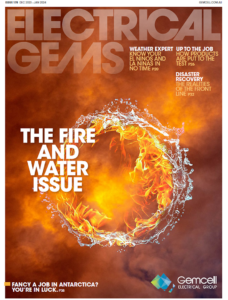
Issue 178
DEC 2023 - JAN 2024

Issue 177
OCT - NOV 2023

Issue 176
AUG - SEPT 2023

Issue 175
JUN - JUL 2023

Issue 174
APR - MAY 2023

Issue 173
FEB - MAR 2023

Issue 172
DEC 2022 - JAN 2023

Issue 171
OCT - NOV 2022

Issue 170
AUG - SEPT 2022

Issue 169
JUN - JUL 2022

Issue 168
APR - MAY 2022

Issue 167
FEB - MAR 2022
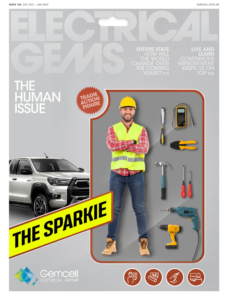
Issue 166
DEC 2021 - JAN 2022

Issue 165
OCT - NOV 2021

Issue 164
AUG - SEPT 2021
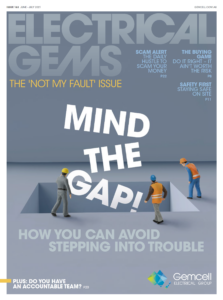
Issue 163
JUN - JUL 2021
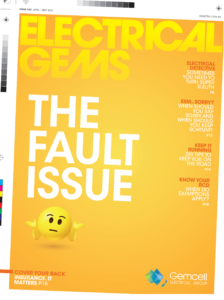
Issue 162
APR - MAY 2021

Issue 161
FEB - MAR 2021

Issue 160
DEC 2020 - JAN 2021

Issue 159
OCT - NOV 2020

Issue 158
AUG - SEPT 2020
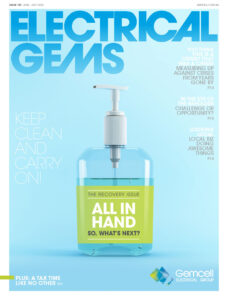
Issue 157
JUN - JUL 2022

Issue 156
APR - MAY 2020
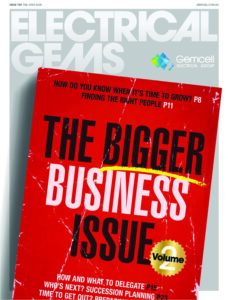
Issue 155
FEB - MAR 2020

Issue 154
DEC 2019 - JAN 2020

Issue 153
OCT - NOV 2019

Issue 152
AUG - SEPT 2019

Issue 151
JUN - JUL 2019
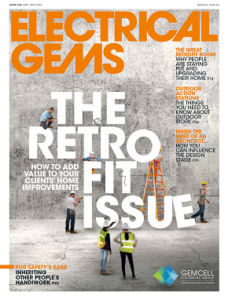
Issue 150
APR - MAY 2019

Issue 149
FEB - MAR 2019

Issue 148
DEC 2018 - JAN 2019

Issue 147
OCT - NOV 2018

Issue 146
AUG - SEPT 2018

Issue 145
JUN - JUL 2018

Issue 144
APR - MAY 2018

Issue 143
FEB - MAR 2018

Issue 142
DEC 2016 - JAN 2017

Issue 141
OCT- NOV 2017

Issue 140
AUG - SEPT 2017

Issue 139
JUN - JUL 2017
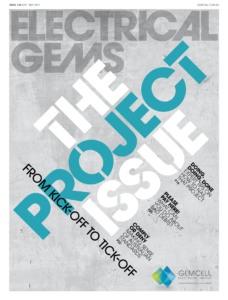
Issue 138
APR - MAY 2017

Issue 137
FEB - MAR 2017

Issue 136
DEC 2016 - JAN 2017

Issue 135
OCT - NOV 2017

Issue 134
AUG - SEPT 2016

Issue 133
JUN - JUL 2016
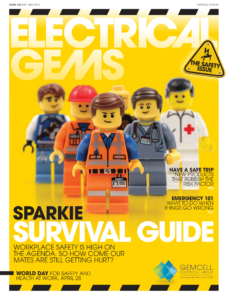
Issue 132
APR - MAY 2016

Issue 131
FEB - MAR 2016
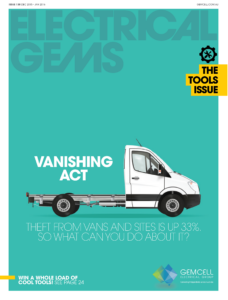
Issue 130
DEC 2015 - JAN 2016

Issue 129
OCT - NOV 2015

Issue 128
AUG - SEPT 2015

Issue 127
JUN - JUL 2015

Issue 125
APR - MAY 2015

Issue 125
FEB - MAR 2015

Issue 124
DEC 2014 - JAN 2015

Issue 123
OCT - NOV 2014

Issue 122
AUG - SEPT 2014

Issue 121
JUN - JUL 2014

Issue 120
APR - MAY 2014

Issue 119
FEB - MAR 2014

Issue 118
DEC 2013 - JAN 2014

Issue 117
OCT - NOV 2013
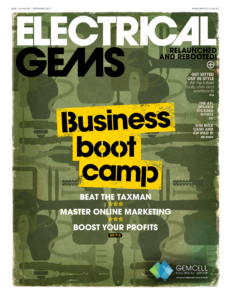
Issue 116
AUG - SEPT 2013

Comments (0)
Write a Comment